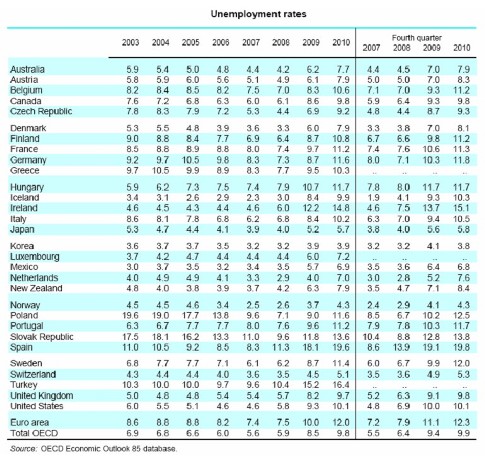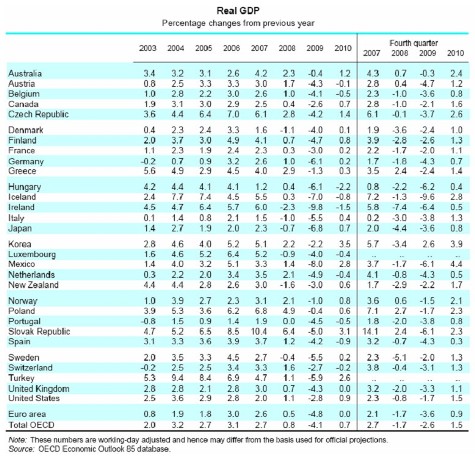TUAC NEWS
OECD Improved Economic Outlook: No Reason for Complacency
24/06/2009
The OECD has revised its growth projections upwards for the first time in two years. But this is no cause for complacency. Closer inspection shows the evidence for an impending recovery to be far from convincing. On the contrary, forecasts for real GDP and unemployment rates across the OECD indicate that, as yet, there are more bad weeds than green shoots. The predicted rise in unemployment signals the need for strong and sustained action on employment and labour market policies.
Despite the optimistic overtones of the OECD forecasts, the world economy is in fact still contracting, as reported by the World Bank, although not as fast as in the first quarter of 2009. Real GDP is forecast to fall across the OECD during the current year by about 4.1 %. Particularly severe are the predicted falls for Ireland (-9.8%), Japan (-6.8%), Germany (-6.1%), Italy and Sweden (both -5.5%) the Netherlands (-4.9%) and the UK (-4.3%). (See TABLE below.)

The predicted decline in GDP in 2009, subsequent stagnation in 2010 and ongoing rise in unemployment – which is predicted to peak in the fourth quarter of 2010 and to reach well into double figures in 14 OECD countries – do not suggest that the global economy is set for a robust recovery any time soon (see Table above). The assumption that the recession in some parts of the global economy is about to bottom out appears overly optimistic.

Governments must act urgently to provide greater resources to prevent the economic crisis from turning into a long-lasting social crisis. This was the message TUAC delivered today at the OECD’s annual Ministerial Council Meeting. TUAC President, John Sweeney, warned of the anger felt by workers around the world, underlining that unemployment now lies at the vortex of the crisis. He called on Ministers to support the ILO Global Jobs Pact and for the OECD to spell out its strategy for building a “stronger, cleaner and fairer world economy”. (document attached)